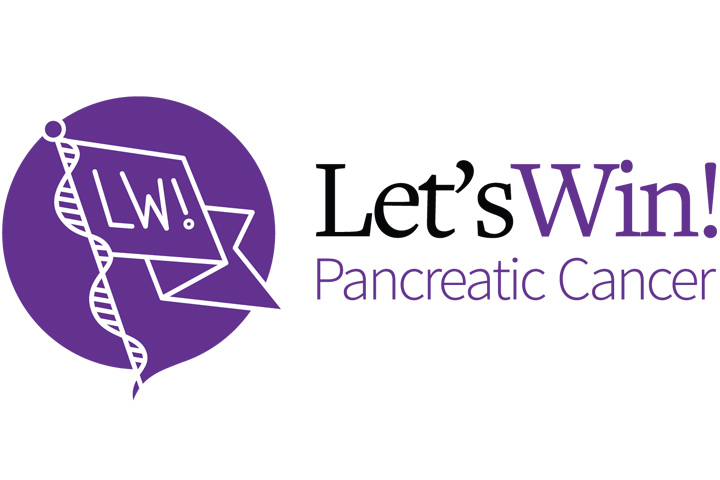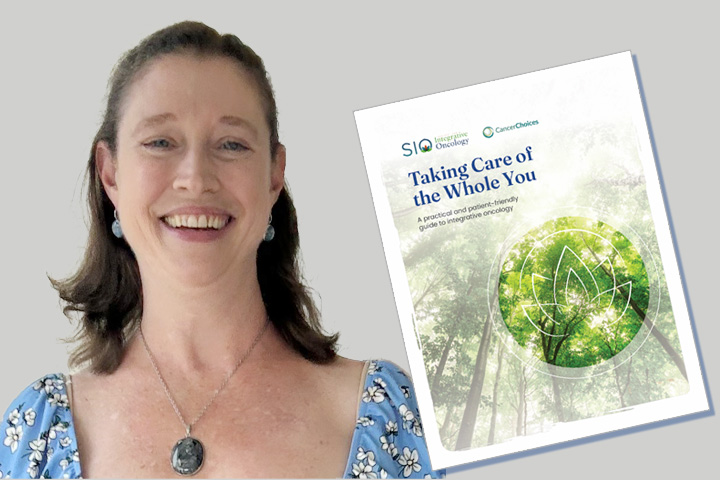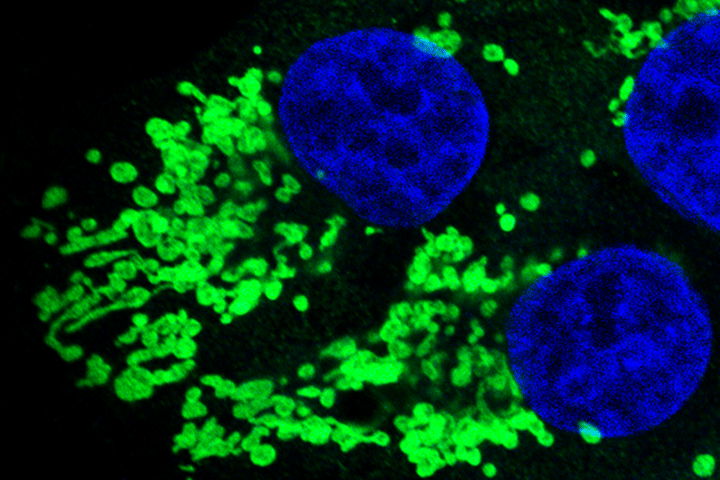A Report from ASCO GI 2022

The annual ASCO GI symposium 2022 brought together some of the world’s leading gastrointestinal medical oncologists to discuss recent innovations, multidisciplinary approaches, and potential changes to standard-of-care regimens for the treatment of cancers of the GI tract.
As such, pancreatic cancer was again well represented in this year’s virtual conference. As we always do, Let’s Win is highlighting several of the presentations to keep you informed of the important work being done to improve the lives of pancreatic cancer patients. In the weeks to come, we will be covering some of these topics, as well as others from the GI symposium, in a number of in-depth articles. But for right now, here are some highlights.
Adagrasib Monotherapy: KRYSTAL-1 Trial
There was positive news for the KRYSTAL-1 trial showing the potential of adagrasib (MRTX849) for patients with previously treated KRAS G12C-mutant gastrointestinal tumors. Patients with previously treated pancreatic cancer as well as other non-colorectal gastrointestinal tumors that harbor KRAS G12C mutations had encouraging clinical activity with adagrasib as monotherapy, according to results of the phase II cohort of the KRYSTAL-1 trial.
Updated results from the study showed a 100% disease control rate in patients with previously treated, KRAS G12C-mutated pancreatic cancer and other GI cancers. The response rate was 50% in patients with pancreatic cancer and 50% in patients with biliary tract cancer. The median progression-free survival was 6.6 months in patients with pancreatic cancer and 7.85 months for patients with other GI cancers. Overall, adagrasib was well-tolerated.
QUILT-88 Study
Data from the phase II QUILT-88 study showed the combination of aldoxorubicin, N-803 IL-15 superagonist, and PD-L1–natural killer cell therapy after chemo-radiation has efficacy as a third-line or greater treatment in patients with metastatic or locally advanced pancreatic cancer.
The QUILT-88 study has treated 55 participants with low-dose chemo-radiation, nab-paclitaxel, cyclophosphamide, and low-dose SBRT followed by the combination of aldoxorubicin and PD-L1 t-haNK. Researchers found that overall survival was 81.8% in the 44 evaluable patients at three-month follow-up, which is more than double the historical median overall survival in patients who had progressed after two prior lines of therapy. Disease control rate was 36.2% in 47 evaluable patients. Median overall survival is not yet able to be assessed. The median progression-free survival is 2.4 months, and 36% of participants have not progressed to date.
COVID-19 Pandemic and Pancreatic Cancer Patients
According to a poster presentation, the COVID-19 pandemic did not cause patients with pancreatic cancer to delay seeking care. It also did not prolong time to treatment. The researchers looked at data from 488 patients in California diagnosed with pancreatic cancer from March 2019 to September 2020. The cohort included 333 patients who were diagnosed pre-COVID (March 2019 to March 2020), with the remaining patients diagnosed during the pandemic (March 2020 to September 2020).
Comparing the cohorts, there was no significant difference in clinical stage at diagnosis. For example, 19.5% of patients were diagnosed with resectable disease pre-COVID and 17.4% during COVID. Borderline resectable disease was about 11% for both cohorts, locally advanced disease was 20.1% and 23.9%, and metastatic disease 31.8% and 32.9%. There was no significant difference in the time from symptom onset to a clinical encounter between the cohorts. The median time was 21 days both pre-COVID and during the pandemic. Time to diagnosis was also similar as was start of treatment, which also did not change significantly pre-COVID or during the pandemic.
The authors say telehealth programs and other safety measures allowed pancreatic cancer patients to receive appropriate care.
Cancer Commons Benefits Pancreatic Cancer Patients
A presentation from the nonprofit group Cancer Commons showed success in its approach for a cohort of pancreatic cancer patients. Cancer Commons is designed to provide personalized treatment plans to those with metastatic disease. Results from the study dubbed Cancer Commons’ virtual tumor board program: A patient-centric advisory panel and real-world data registry were gleaned from September 2020 to December 2021.
During this period, the group’s virtual tumor board (VTB) reviewed 103 unique pancreatic cancer cases. The VTB consists of oncology experts and serves as an advisory panel by providing information on treatment options based on a comprehensive review of patients’ oncologic history.
Personalized treatment options and their rationales are provided, and outcomes tracked in a prospective registry called XCELSIOR.
The data breakdown is as follows: Collectively, the VTB provided 523 treatment and diagnostic options with a median of five options per patient. As of December 30, 2021, 112 VTB reports were provided. Of 46 instances where “no treatment decision” was implemented, 41% are deceased, 24% are stable, and 12% had other reasons. Of the 37 people who started a subsequent treatment, 59% were identified by the VTB. These included 12 FDA-approved, four off-label, and six on-trial treatments. Of 15 treatments received not identified by the VTB, seven were FDA-approved, two were off-label, three were on-trial, and three were local treatments. According to the researchers, this early data suggests success in identifying treatment and clinical trial opportunities for this cohort. Future steps will include streamlining communication with primary oncologists and enhancing access to treatments.
Other Studies
There were numerous other studies of note, including, but not limited to, research showing:
- A phase Ib study demonstrating the feasibility and safety of adding canakinumab and spartalizumab to standard of care chemotherapy in first-line metastatic pancreatic cancer. The study also established the recommended phase II/III dose. This novel four-drug combination will be tested in a randomized phase II/III study through the Precision Promise clinical trial network.
- Clinical meaningful antitumor activity and a manageable safety profile were demonstrated after stereotactic body radiotherapy (SBRT)/nivolumab/ipilimumab in patients with refractory metastatic pancreatic cancer.
- A retrospective analysis aimed to assess the clinical relevance of adjuvant chemotherapy in patients who underwent surgery following neoadjuvant mFOLFIRINOX. The analysis showed that pancreatic cancer patients who underwent surgery following neoadjuvant mFOLFIRINOX, adjuvant chemotherapy may be associated with improved survival outcomes.
- Lung-only metastasis in both resectable and advanced pancreatic cancer confers a significant survival advantage compared to liver-only metastasis. The researchers say deeper investigation into the molecular drivers of site-specific metastases is warranted.
- Adding the PD-1 inhibitor sintilimab to chemotherapy improved objective response rate, but not survival outcomes, in patients with advanced or recurrent pancreatic adenocarcinoma, according to data from the phase III CISPD3 trial.
- Adding eryaspase to chemotherapy does not improve survival outcomes for patients with advanced pancreatic cancer, according to phase III trial results of more than 500 patients with stage III-IV pancreas cancer who progressed on one prior line of systemic treatment.
- A presentation on access and disparities in pancreatic cancer surgery and delivery of care outlined several concerning issues regarding racial and socioeconomic issues. For example, though it was first described in 2010, Black patients today are still less likely to undergo surgery. This may be due to physician bias of potentially curative treatment, mistrust of the medical community, and lack of access to high-volume centers due to travel issues or loss of time from work. Delivery of neoadjuvant therapy is compromised due to a relationship between potentially longer distances necessary to receive treatment and time commitment. Other factors perpetuating racial and socioeconomic disparities and pancreatic cancer care were also discussed, including precision medicine potentially exacerbating health inequalities if treatment is only provided in academic medical centers. Novel ways need to be developed to ensure durable health equity.






